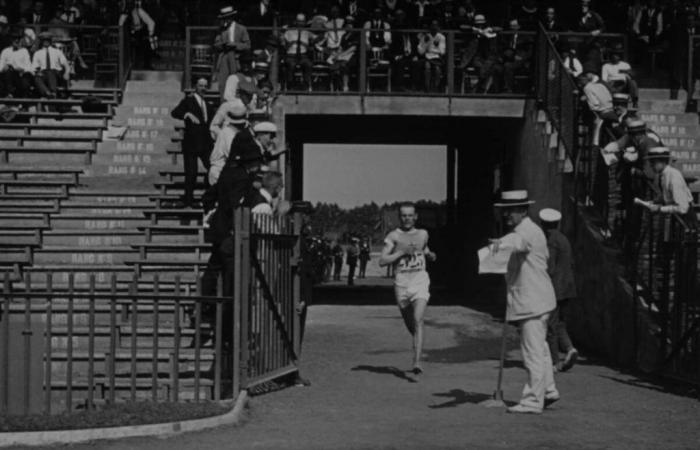“1924, the Paris of the Olympic Games” GAUMONT PATHÉ ARCHIVES
Facebook Twitter E-mail Copy link
Send
Free access
Selection The turpitudes encountered during the 1924 demonstration are more or less the same as those of 2024, recounted in this fascinating documentary. Tonight at 9 p.m. on Public Senate.
Refusal of the town hall to allocate subsidies to build a new stadium, surge in the price of hotel rooms, train tickets to the suburbs (multiplied by three) and places for the various events (up to 50 francs of at the time, i.e. 5,200 euros today)… Time has no effect: a century later, the challenges of all kinds facing the organizers of the 2024 Olympics are largely similar to those of 1924 , recalls this documentary full of information. But these Games, whose candidacy was won by Pierre de Coubertin in Los Angeles, also bring new life to a France still marked by the demographic losses of the Great War – 1.5 million dead, including many sportsmen, like the long-distance runner Jean Bouin.
135 women out of 3,000 athletes
On July 5, President Gaston Doumergue opened this seventh edition of the Summer Olympic Games at the Colombes stadium, covered by hundreds of journalists from all over the world. Which participate in the new pipolization of athletes, like the treatment reserved for the British long-distance runners Harold Abrahams and Eric Liddell (the future characters in “Chariots of Fire”, an Oscar-winning film in 1982), for the swimmer Johnny Weissmuller (who would become Tarzan in Hollywood), or to the tennis player Suzanne Lenglen, forehand genius and fashion influencer.
Criticized beforehand but crowned with success, these Games confirmed the great intellectual ferment of the Roaring Twenties – in 1924, the arts were considered an Olympic discipline. Third nation behind the United States and Finland, France won 38 medals including 13 gold. The only downside is the starving place given to women. There are only 135 of them out of more than 3,000 athletes and only have access to a few disciplines. The fault of Pierre de Coubertin, opposed to their active participation in order, he said, to preserve “their femininity and fertility”. His claimed machismo had, two years earlier, prompted the pioneer Alice Milliat to launch the first women’s Games, provoking the ire of the Olympic committee and the conservative press.
◗ Saturday June 22 at 9 p.m. on Public Senate. Documentary by Marie-Laurence Rincé (2024). 1h20. (Available in replay on the Public Senate website).
On the subject Documentaries






